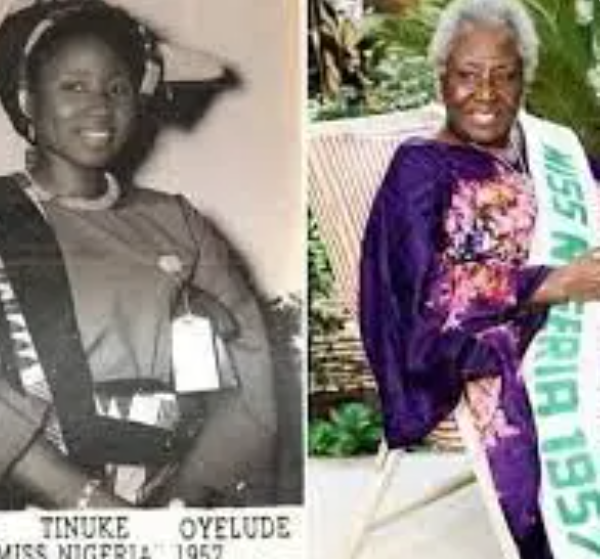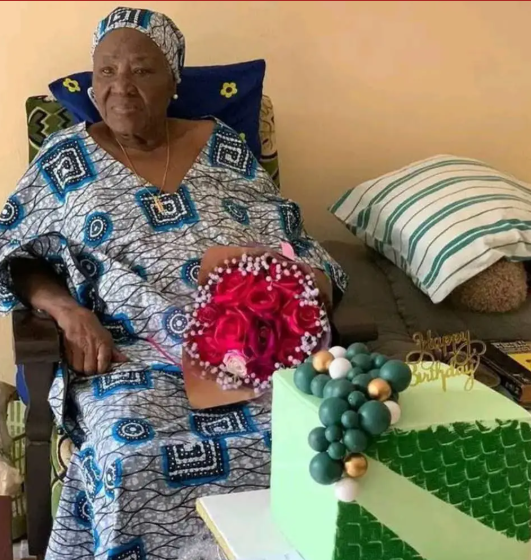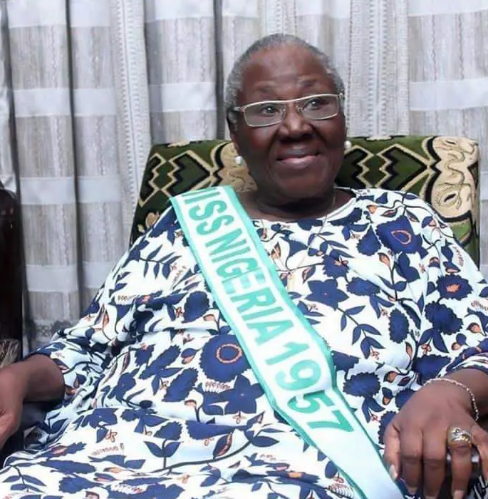Grace Oyelude: Nigeria’s Trailblazing Beauty Queen

The Miss Nigeria pageant, now a cherished cultural institution, had humble beginnings in 1957 as a photo-based competition initiated by the Daily Times newspaper.
Celebrating Women in Pageantry
April 8 marks International Pageant Day—a day dedicated to acknowledging the elegance, strength, and perseverance of women who grace the world of beauty pageants. It's also a day meant to inspire young girls by showcasing how pageantry can open doors to life-changing experiences.
While the first documented beauty pageant in the world was the 1839 Eglinton Tournament in Scotland—where Georgiana Seymour, Duchess of Somerset, was named "Queen of Beauty"—Nigeria’s introduction to pageantry came over a century later through a creative photo contest.
The Birth of Miss Nigeria
In 1957, the Daily Times newspaper launched Nigeria’s first beauty contest, asking interested women to send their photographs to its Lagos office. This innovative format laid the foundation for what would later become the prestigious Miss Nigeria pageant.
One of the applicants, Grace Atinuke Oyelude, would go on to become a national icon. Encouraged by her brother, Grace—who was living in Kano at the time—submitted her photo for the contest.
"My brother saw the ad and told me to go to Lagos for the selection interview. I worked with UAC back then, and they were involved in organizing the event. The next day, I was flown to Lagos for the competition," she once recounted.
A Queen is Crowned
Born in 1937 in Kano to James Adeleye Olude and Marthan Dantu, Grace Oyelude was selected and crowned as Nigeria’s very first beauty queen. Her victory not only marked a milestone in Nigerian history but also set in motion a tradition that would captivate the nation for decades.

Alongside the crown, she received a £200 cash reward—a considerable amount at the time. With wisdom beyond her years, she used part of her prize money to pursue a nursing education in the United Kingdom.
A Legacy Beyond the Crown
Grace relocated to the UK, where she began her studies in Kent, qualifying as a registered nurse in 1961. A year later, she completed her midwifery training at the prestigious St. Thomas' Hospital in London.
Over the years, she pursued further education, gaining additional qualifications in health administration. She served at Paddington General Hospital in London, affiliated with St. Mary’s Hospital, before returning to Nigeria in 1964. There, she worked at Kaduna General Hospital and later became Senior Nursing Sister-in-Charge at what is now Barau Dikko Specialist Hospital.
During the 1967 Nigerian Civil War, she led a medical team from the Northern Region, playing a vital role in managing wartime casualties. In the early 1970s, she was appointed Director of Nursing Services at the Institute of Health, Ahmadu Bello University—a position she held until her voluntary retirement in 1985.
Beyond clinical work, she played influential roles in shaping Nigeria’s healthcare system. She served as an external examiner for the Nursing and Midwifery Council of Nigeria and chaired the Kwara State Health Management Board between 1980 and 1983.
A Celebrated Life
On her 93rd birthday in 2023, the Miss Nigeria Organization honored her with heartfelt accolades:
“We are deeply honored to celebrate the timeless beauty and courageous trailblazer, Chief Grace Atinuke Oyelude. Her strength, grace, and enduring impact have touched many. Happy 93rd birthday to our very first queen—thank you for paving the way and setting high standards for every Miss Nigeria to follow.”

A Lasting Influence
From its origin as a simple photo contest, the Miss Nigeria pageant has evolved into a major national event that highlights intelligence, elegance, and civic-mindedness. Winners today receive academic scholarships and take on ambassadorial roles in community development and cultural advocacy.
Among the early titleholders were Helen Anyamaeluna, crowned in 1958, and Nene Etule, a seamstress and the only non-Nigerian winner to date, who took the title in 1959.
Grace Oyelude remains more than a beauty queen—she is a symbol of strength, service, and ambition. Her legacy continues to inspire generations of women to pursue their dreams with purpose, pride, and perseverance.




